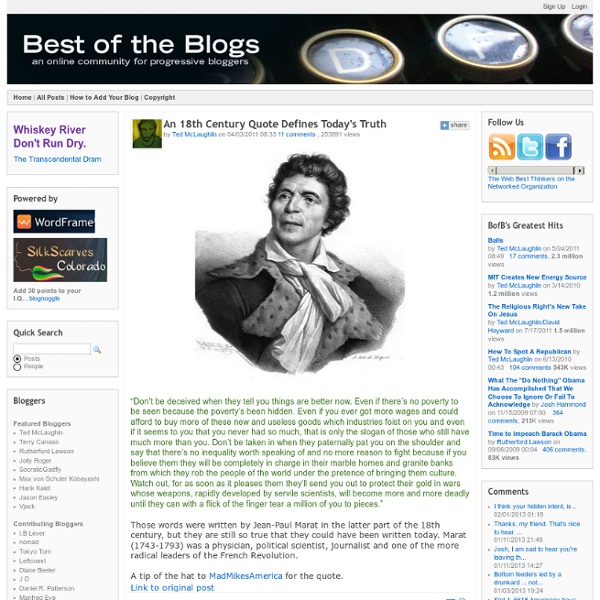An 18th Century Quote Defines Today's Truth

www.bulwer-lytton.com
The Fox and the Grapes
The illustration of the fable by François Chauveau in the first volume of La Fontaine's fables, 1668 "The Fox and the Grapes" is one of the traditional Aesop's fables and can be held to illustrate the concept of cognitive dissonance. In this view, the premise of the fox that covets inaccessible grapes is taken to stand for a person who attempts to hold incompatible ideas simultaneously. The fable[edit] Driven by hunger, a fox tried to reach some grapes hanging high on the vine but was unable to, although he leaped with all his strength. In her version of La Fontaine's Fables, Marianne Moore underlines his ironical comment on the situation in a final pun, "Better, I think, than an embittered whine".[4] Although the fable describes purely subjective behaviour, the English idiom sour grapes which develops from the story is now often used also of envious disparagement to others. La Fontaine's Le Renard et les Raisins[edit] The gallant would gladly have made a meal of them So he goes away sour;
Kurt Vonnegut explains drama
I was at a Kurt Vonnegut talk in New York a few years ago. Talking about writing, life, and everything. He explained why people have such a need for drama in their life. He said, “People have been hearing fantastic stories since time began. He drew an empty grid on the board, like this: Time moves from left to right. He said, “Let's look at a very common story arc. It starts with her awful life with evil stepsisters, scrubbing the fireplace. “People LOVE that story! He wiped the board clean and said, “Now let's look at another popular story arc: the disaster.” It's an ordinary day in an ordinary town. But the problem is, life is really like this... Our lives drifts along with normal things happening. “But because we grew up surrounded by big dramatic story arcs in books and movies, we think our lives are supposed to be filled with huge ups and downs! That's why people invent fights. We're trying to make our life into a fairy tale.
Anti-humor
Anti-humor is a type of indirect humor that involves the joke-teller delivering something which is deliberately not funny, or lacking in intrinsic meaning. The practice relies on the expectation on the part of the audience of something humorous, and when this does not happen, the irony itself is of comedic value. Anti-humor is also the basis of various types of pranks and hoaxes. Examples[edit] A common example of anti-joke is "Why did the chicken cross the road?" The shaggy dog story involves telling an extremely long joke with an intricate (and sometimes horribly grisly) back story and surreal or incredibly repetitive plotline, but ending the story with either a weak spoonerism (e.g.' In stand-up comedy[edit] Alternative comedy, among its other aspects, parodies the traditional idea of the joke as a form of humor.[3] Anti-humor jokes are also often associated with deliberately bad stand-up comedians. See also[edit] References[edit] Jump up ^ Warren A. External links[edit]
Book of Numbers
Related:
Related:



